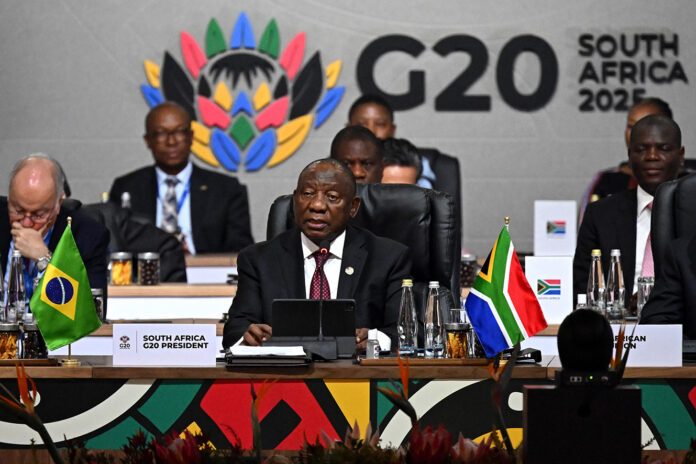South Africa has officially closed its year-long G20 Presidency, marking the end of a historic chapter as the first African country to host the G20 Leaders’ Summit.
President Cyril Ramaphosa said South Africa had approached its Presidency with the focus on putting Africa at the centre of the global agenda.
He highlighted Africa as the world’s next major engine of prosperity, saying strong partnerships between Africa, the G20 and the wider international community were essential to unlocking this potential.
The President reiterated South Africa’s stance on global conflicts, calling for unity and an end to wars.
“Recognising our interconnectedness as a global community of nations, we have called for an end to conflicts and wars around the globe and for a just, comprehensive and lasting peace,” said Ramaphosa.
Global ills like poverty demand action
He said the G20 Summit came at a moment when the world was demanding action on challenges including poverty, inequality and climate change. He noted that developing countries were facing rising debt burdens that weakened their ability to meet the Sustainable Development Goals.
The G20 has therefore pledged support for low- and middle-income countries faced with debt challenges, President Ramaphosa said, adding that more effort should be [placed] on reducing debt, higher public investment and inclusive growth.
Disaster resilience and climate response were central during South Africa’s Presidency, hence the note from President Ramaphosa said climate-related disasters continued to hit poorer nations the hardest. “South Africa had pushed for stronger global backing for post-disaster reconstruction.”
President Ramaphosa emphasised the need for sustained cuts in greenhouse gas emissions and stronger support for country-level transition platforms such as the Just Energy Transition Partnership.
He further highlighted support for the G20 Critical Minerals Framework, aimed at ensuring that mineral wealth drives sustainable development globally.
Keep G20 fit for purpose
The G20@20 Review, conducted under South Africa’s leadership, would help ensure the forum remains responsive to global changes. “It is our hope that recommendations of the Review will serve as a helpful guide for the G20 to ensure that it remains fit for purpose in an ever-changing world,” he said.
“The G20 must continue to support inclusive growth and the needs of developing regions.”
He hailed the adoption of the G20 South Africa Summit Leaders’ Declaration as proof that the forum can still unite behind key global goals.
“Our agreement on a declaration during this summit demonstrates the value of the G20 as a forum that can facilitate joint action,” he said, adding that it shows a renewed commitment to multilateralism.”
“We have laid the foundation of solidarity, now we must build the walls of justice and the roof of prosperity,” he added.



